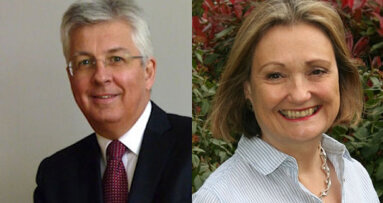LONDON, UK: In light of World Antibiotic Awareness Week running from 12 to 18 November, the British Dental Association (BDA) has commended British dentists for reducing the number of unnecessary antibiotic courses prescribed for patients. Figures from the latest report by the English Surveillance Programme for Antimicrobial Utilisation and Resistance (ESPAUR) show that dental practices dispensed 23.9 per cent fewer prescriptions for antibiotics in 2017 compared with 2013.
The need to maintain the potency of existing antibiotics was highlighted in a report published last month by the Health and Social Care Committee (HSCC) in the House of Commons. The report outlined that antimicrobial resistance could kill up to ten million people per year by 2050 if current prescription trends continue. Given this dire outlook, the HSCC urged the British government to include antimicrobial resistance as a “top five policy priority” and called for a budget dedicated to making progress in this area to be established.
In the report from ESPAUR, it was noted that there had been a 13.2 per cent reduction in antibiotic prescriptions in primary care settings from 2013 to 2017. Though this reduction is cause for some optimism, ESPAUR warned of the major risk arising from the fact that no new classes of antibiotics have been discovered for decades because of market failure—pharmaceutical companies are concerned about the profitability of new antimicrobial drugs and investment in their development has therefore been limited.
“As the BDA has taken a lead on addressing antimicrobial resistance in dentistry, issuing a consensus report in May 2015, it is gratifying that statistics back up the fact that dentists are playing their part in reducing antibiotic prescribing,” said Dr Susie Sanderson, President of the BDA.
“However, the existential threat from antimicrobial resistance is so great that none of us can rest on our laurels. There is a whole range of fronts where we still need to secure progress to avoid inappropriate use of antibiotics in dentistry. Properly funded emergency treatment slots, and removing the pressures that push dental patients to general practitioners, are key to bringing down antibiotic prescribing,” she urged.
Sanderson said that “the BDA continues to lobby for reform of the dental contract to provide adequately funded time for the treatment of dental emergencies”.
Tags:
SHEFFIELD, UK: Scientists at the University of Sheffield have identified a significant rise in the number of people diagnosed with a serious heart infection...
LONDON, UK: The British Dental Association (BDA) has recognised the work of fourteen UK-based dentists with its annual Honours and Awards. The dentists were...
CAMBRIDGE, UK: While dentists only prescribe 10 per cent of all antibiotics in the UK, they often prescribe them inappropriately. Over-prescription of ...
BIRMINGHAM, UK: Less counterfeit or non-compliant dental equipment than last year had to be removed from the BDIA Dental Showcase, a representative of the ...
CARDIFF, UK: The British Dental Association (BDA) Wales has criticised a pay increase for Welsh dentists that is below current inflation rates in the UK. It...
BELFAST, UK: Dentists in Northern Ireland and Scotland are struggling. Several pleas to ministers for financial support for private and mixed dental ...
LONDON – According to TeethWise, a cosmetic dental clinic search and cost comparison website, the number of people travelling for dental treatments ...
LONDON, UK: In 2016, the National Institute for Health and Care Excellence’s CG64 clinical guideline (NICE CG64) was revised to include new guidance for ...
BELFAST, UK: This Friday is European Antibiotic Awareness Day. On this occasion, the British Society of Dental Hygiene and Therapy (BSDHT) has announced it ...
LONDON, UK: According to a new study, dentists in England wrote 25% more prescriptions for antibiotics between April and July 2020 than they did during the ...
Live webinar
Tue. 24 February 2026
6:00 pm UTC (London)
Prof. Dr. Markus B. Hürzeler
Live webinar
Tue. 24 February 2026
8:00 pm UTC (London)
Prof. Dr. Marcel A. Wainwright DDS, PhD
Live webinar
Wed. 25 February 2026
4:00 pm UTC (London)
Prof. Dr. Daniel Edelhoff
Live webinar
Wed. 25 February 2026
6:00 pm UTC (London)
Live webinar
Thu. 26 February 2026
1:00 am UTC (London)
Live webinar
Tue. 3 March 2026
4:00 pm UTC (London)
Dr. Omar Lugo Cirujano Maxilofacial
Live webinar
Wed. 4 March 2026
1:00 am UTC (London)
Dr. Vasiliki Maseli DDS, MS, EdM



 Austria / Österreich
Austria / Österreich
 Bosnia and Herzegovina / Босна и Херцеговина
Bosnia and Herzegovina / Босна и Херцеговина
 Bulgaria / България
Bulgaria / България
 Croatia / Hrvatska
Croatia / Hrvatska
 Czech Republic & Slovakia / Česká republika & Slovensko
Czech Republic & Slovakia / Česká republika & Slovensko
 France / France
France / France
 Germany / Deutschland
Germany / Deutschland
 Greece / ΕΛΛΑΔΑ
Greece / ΕΛΛΑΔΑ
 Hungary / Hungary
Hungary / Hungary
 Italy / Italia
Italy / Italia
 Netherlands / Nederland
Netherlands / Nederland
 Nordic / Nordic
Nordic / Nordic
 Poland / Polska
Poland / Polska
 Portugal / Portugal
Portugal / Portugal
 Romania & Moldova / România & Moldova
Romania & Moldova / România & Moldova
 Slovenia / Slovenija
Slovenia / Slovenija
 Serbia & Montenegro / Србија и Црна Гора
Serbia & Montenegro / Србија и Црна Гора
 Spain / España
Spain / España
 Switzerland / Schweiz
Switzerland / Schweiz
 Turkey / Türkiye
Turkey / Türkiye
 UK & Ireland / UK & Ireland
UK & Ireland / UK & Ireland
 International / International
International / International
 Brazil / Brasil
Brazil / Brasil
 Canada / Canada
Canada / Canada
 Latin America / Latinoamérica
Latin America / Latinoamérica
 USA / USA
USA / USA
 China / 中国
China / 中国
 India / भारत गणराज्य
India / भारत गणराज्य
 Pakistan / Pākistān
Pakistan / Pākistān
 Vietnam / Việt Nam
Vietnam / Việt Nam
 ASEAN / ASEAN
ASEAN / ASEAN
 Israel / מְדִינַת יִשְׂרָאֵל
Israel / מְדִינַת יִשְׂרָאֵל
 Algeria, Morocco & Tunisia / الجزائر والمغرب وتونس
Algeria, Morocco & Tunisia / الجزائر والمغرب وتونس
 Middle East / Middle East
Middle East / Middle East


















































To post a reply please login or register